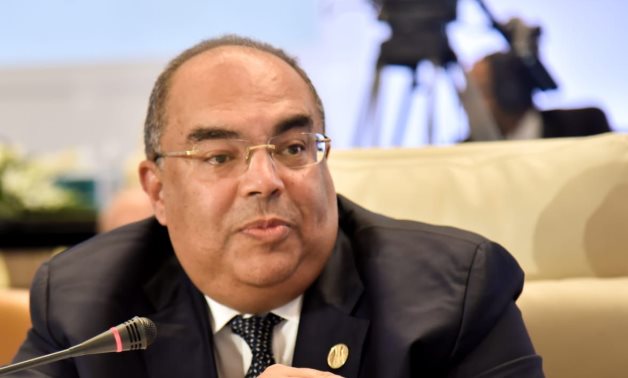
C3S: July 22 hottest day in recent history
July 22 was the hottest day on earth in recent history, according to the Copernicus ...

Dr. Mahmoud Mohieldin, UN Climate Change High Level Champion for Egypt UN Special Envoy on Financing 2030 Sustainable Development Agenda, said that the participation of investors and the private sector in climate action is necessary, but it must be carried out according to clear standards of responsibility and accountability.
He made the remarks during his participation in the session “Investors Engagement with Governments to Support Climate Action”.
He explained that the fulfillment of climate pledges, whether at the level of governments or the private sector, must be carried out according to specific mechanisms to ensure that climate action is implemented in the desired way.
He said that climate justice can be achieved through collaboration in sharing technology and technical assistance, mobilizing sufficient finance to fill a gap of $2.4 trillion a year, developing regulatory frameworks that incentivize climate action, and governing climate activities through clear standards of responsibility and accountability.
Meanwhile, Mohieldin said that Public-Private Partnerships (PPPs) can play a pivotal role in the implementation of projects revealed by the Regional Platforms for Climate Projects (RPCP) initiative.
This came during his participation in the session entitled “Transition Financing: From Ambition to Action” at COP28, with the participation of Tatiana Molcean, UN Under-Secretary-General and Executive Secretary of UNECE, Johannes Hahn, European Union Commissioner for Budget and Administration, Jorgi Familiar, Vice President of the World Bank, and a number of ministers and officials of financial organizations, international and regional banks and representatives of the private sector.
Mohieldin said that the initiative revealed a large number of projects that represent promising investment opportunities for the private sector, adding that the implementation of these projects requires providing adequate funding, technical support and regulatory frameworks that stimulate climate action.
Mohieldin explained that some of the industrial and trade policies adopted recently by EU and the United States reduce the competitiveness of some hard-to-abate sectors in developing countries, but at the same time they can represent opportunities for partnership and cooperation between these countries and developing countries in implementing the transition in these sectors.
In another session, Mohieldin stressed that the knowledge accumulation and the promotion of partnerships are necessary to achieve the goals of climate action, explaining that cooperation and exchange of experiences would help developing countries implement their climate activities.
This came during his participation in the session “The BUE Simulation Model of COP28: Youth Leads Climate Action”, with the participation of Dr. Ashraf Sobhi, Minister of Youth and Sports, Dr. Mohamed Lotfy, Chairman of the BUE, Alessandro Fracassetti, ReAsident Representative of the UNDP in Egypt, and Ambassador Nada Al Ajizi, Minister Plenipotentiary and Director of the Department of Sustainable Development and International Cooperation at the League of Arab States.
Mohieldin said that it has become necessary to plan and prepare well for climate action implementation programs in light of the rapid change in the world, explaining that the launch of the Sharm El Sheikh Adaptation Agenda (SAA) and the Loss and Damage Fund at COP27, as well as the launched fund by the UAE to finance climate action are measures that resulted from good preparation by experts that took months of work.
July 22 was the hottest day on earth in recent history, according to the Copernicus ...
Google has engaged in partnership with DHL to utilize the DHL Express GoGreen Plus service ...
Mars has announced registering a record 8% greenhouse gas (GHG) emissions reduction against its 2015 ...


اترك تعليقا